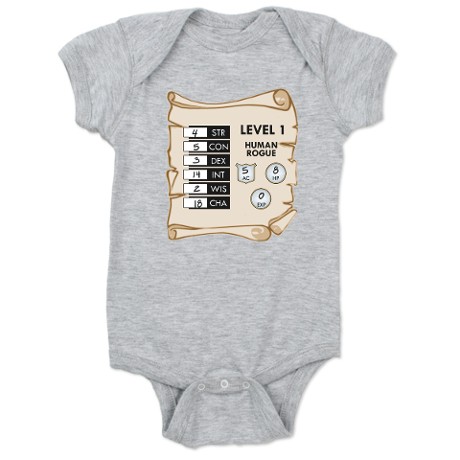I kicked off Bike Month 2014 on Saturday with a lovely day, cookies, volunteering and a baby who was less than enthusiastic about biking.
I volunteered for the now-annual Tour de Cookie, a fundraiser for the children’s charity the Treehouse and my town’s biggest bike ride. It’s purposely oriented towards being family-friendly, which is pretty unique for large organized rides. It has both a short route and long route that feature 10 different cookie stands, making it a bit of a “rolling bake sale.” There was a number of families with kids on trailers, kids’ seats and tag alongs. They even had a kids’ ride around the parking lot for little ones on tricycles and training wheels. Considering the number of people with small children, I was excited to promote the Kidical Mass rides I’m leading this summer.

While I rode it last year, I chose to volunteer instead for a couple of reasons. I rode it last year to prove to myself that I could and show the world that a 7+ months pregnant woman could. While I wasn’t able to finish the route due to a broken spoke, I still considered it a success. This year, I lacked the pregnancy restrictions, but would still be carrying the baby weight in the form of my actual baby in the trailer behind me. Between the start interfering with his nap schedule and the fact that I didn’t think he was ready for a 12 mile ride, I decided not to participate in the ride itself. Instead, I signed up to staff the Rockville Bicycle Advisory Committee’s outreach booth at the ride’s family fair at the start / finish line.
Even though I wasn’t officially partipating, I still planned to bike over to the ride. As it was a beautiful day and the start wasn’t that far away, I even convinced Chris to come with us against his general preference of “not biking.” After Sprout finished his morning nap, we stuck him in the trailer and headed out.
The ride there was very pleasant and Chris did quite well for himself on the hills. We pedaled past a couple of cookie stands and even though we weren’t riding, mooched cookies off of them as volunteers. They were equal-opportunity cookie distributors. The cookie stands weren’t the only ones mistaking us for riders. As I rolled into the after-ride “fair” area, I happened to cross the finish line and the DJ called me out as a finisher! He said, “That has to count for two people!” in reference to the trailer. Obviously, I wasn’t going to correct him, but I felt a little weird about it.
The ride had a rather substantial set-up for the fair compared to the year before. Besides our booth, they had a huge variety of sponsors, including a local nursery school, Starbucks, a doggy-day care, the Bike to the Beach ride, a children’s book company, and the ever-ubiquitous Gutter Helmet. (Seriously, those folks were at the wedding show I was at years ago.) They had the Cookie Monster costume that RBAC used last year at our stand, along with a woman also dressed as a giant cookie. They also had a magician, a balloon artist and a really amazing lady on stilts.
Unfortunately, Sprout didn’t appreciate the festivities that much. He got upset when the magician made a loud noise during the reveal of his trick and then again when I yelled in his ear by mistake at the start of the kids’ ride. He was fascinated by the lady on stilts though.
Compared to them, our bike maps and community ride flyers weren’t that exciting. Unfortunately, this meant that we didn’t have as much traffic to the booth as I had hoped. We gave out some information, but I’m not sure how much of our target audience we reached.
Fortunately, RBAC’s other efforts seemed more effective. The SAG van got plenty of usage between broken-down bikes and people realizing that they weren’t ready for the 40 mile ride that early in the season. Our group also helped with the ride marshalling and signage, which was substantially better than the year before.
After a couple hours there, we packed everything up and headed home as the clouds started to loom. After only a mile in, as I was heading up a steep hill, Sprout started to cry. I stopped to see what was wrong and the only things that seemed to be issues were that his helmet was over his eyes and he was overtired. I tried to comfort him, but as soon as I began pedaling again, he started wailing. As I couldn’t do much about the tiredness, I made the difficult executive decision to take off his helmet. I was more concerned about him choking himself with the strap from thrashing around than it not protecting him in some very unlikely theoretical accident. I felt horribly guilty – I could hear my mom’s voice ringing in my ears – but I didn’t know what else to do. Even though he was still displeased – he was giving me a grumpy baby glare – he stopped crying. About halfway home, he fell asleep in the trailer, able to lean his head back in a way that he couldn’t with the helmet on. When we got home, I lifted him out of the trailer and put him in his crib, managing not to wake him.
In some ways, this year’s Tour de Cookie was a logical follow-up to last year’s. Whereas I was pregnant last year, I had a baby with me this year. I shifted from being a rider to being a volunteer. I hope that as years go on, my role can continue to evolve and that one day Sprout will enjoy it as much as I do.




